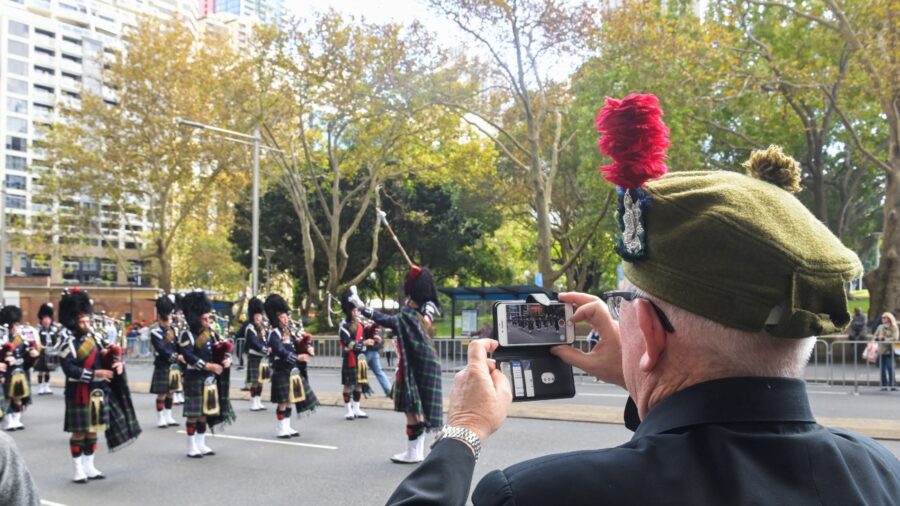MELBOURNE—Thousands of people gathered across Australia and New Zealand on Sunday to honor military personnel on ANZAC Day, a year after the COVID-19 pandemic forced people to commemorate privately in driveways and on balconies.
Anzac Day originally commemorated a bloody battle on the Gallipoli peninsula in Turkey during World War One. On April 25, 1915, thousands of troops from the Australian and New Zealand Army Corps (ANZAC) were among a larger Allied force that landed on the narrow beaches of the Gallipoli peninsula, in an ill-fated campaign that would claim more than 130,000 lives.
Today, ANZAC Day honors all Australian and New Zealand troops from all conflicts.
On Sunday, crowds at typical dawn services were limited due to COVID-19 public health rules, but still thousands were allowed to gather.
“It’s been two years since we’ve had one of these,” Paul Banks, whose father flew in combat in World War II and whose mother was in the civil defense corps in London, was cited by Radio New Zealand as saying.
“I had tears in my eyes. It was far more moving emotionally for me than I can remember in the past.”
New Zealand Prime Minister Jacinda Ardern attended a ceremony at the Auckland War Memorial Museum with 15,000 other people where she praised the dedication of women who have served.
“These were the women who paved the way for women to be fully integrated into our defense force we know today, in our air force, our navy and in our army,” Ardern said.

In neighboring Australia, a crowd of 78,113 packed into the Melbourne Cricket Ground for the traditional Anzac Day Australian rules football blockbuster, the highest attendance at a sports stadium anywhere in the world since the start of the COVID-19 pandemic.
Prime Minister Scott Morrison attended a dawn service at the Australian War Memorial in Canberra with about 4,000 people.
After announcing last week that Australia will withdraw its remaining 80 troops from Afghanistan in line with U.S. plans, Morrison paid a special tribute to the 41 Australians who died in that conflict.
“It’s been our longest war,” Morrison said. “The world is safer from the threat of terrorism than when the twin towers were felled almost 20 years ago. But we remain vigilant. However, this has come at great cost.”
Ceremonies were cancelled in Perth, the capital of Western Australia, and the nearby Peel region, where more than 2 million people were under a strict, three-day lockdown after a small COVID-19 outbreak.
However, there has not been a major community outbreak for months in neither Australia nor New Zealand. People are allowed to travel freely between their countries as of late, dine out, gather in crowds, and stop wearing face masks in most places.
Australia has suffered almost 29,700 infections and 910 deaths, while New Zealand has had 2,245 cases and 26 deaths.
By Lidia Kelly


